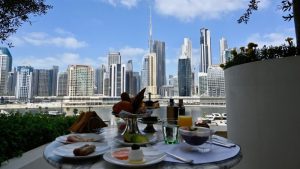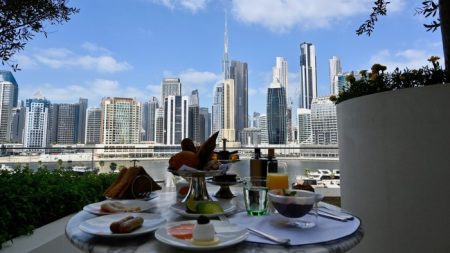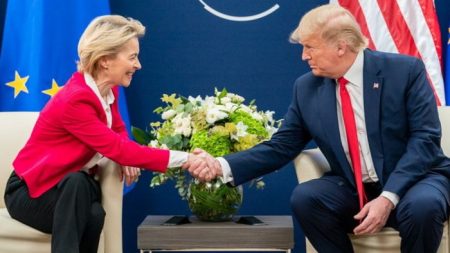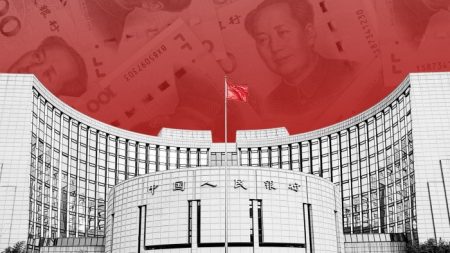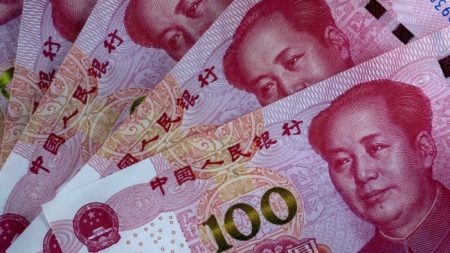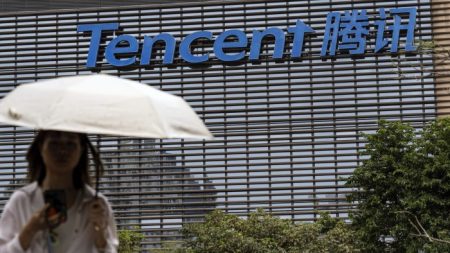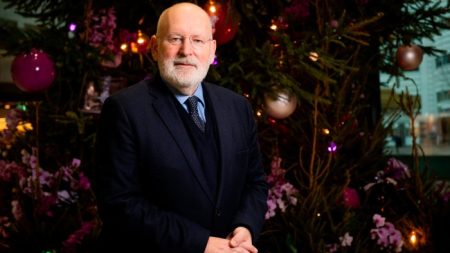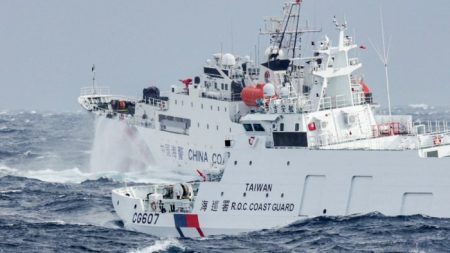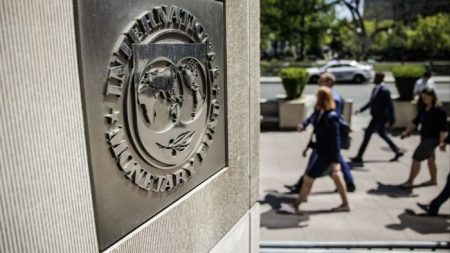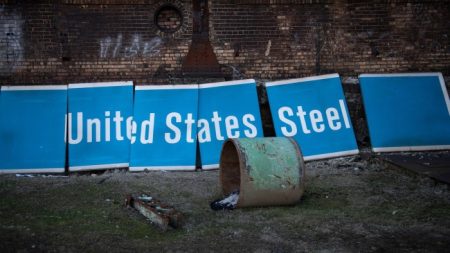Georgian police have brutally cracked down on pro-democracy protesters, marking a significant deterioration of civil rights and a pro-Russia pivot in the EU candidate country.
Police on Tuesday night used water cannons, stun grenades, tear gas and pepper spray to break up a large protest against a “foreign agents” law that demonstrators say is inspired by Vladimir Putin’s Russia. The violence erupted a day after a rare appearance by pro-Russian oligarch Bidzina Ivanishvili, who is also the founder of the ruling party, Georgian Dream.
Ivanishvili on Monday took part in a pro-government rally at which he gave a long, conspiratorial, anti-western speech reminiscent of Russian propaganda, claiming that Georgia was not ruled by “elected authorities, but by foreign agents”.
The controversial law prompted several nights of protests last month, but violence escalated on Tuesday night, with riot police beating up protesters and detaining at least 63 people, according to the interior ministry.
Demonstrators gathered on Tuesday evening after parliament moved ahead with the “foreign agents” law, despite warnings from the EU and the opposition that it emulates Putin’s crackdown on dissent.
While calm returned to the city centre on Wednesday, the parliament’s session discussing the bill was disrupted by a mass brawl among dozens of MPs.
The law requires NGOs and media outlets that receive more than 20 per cent of funding from abroad to register with the ministry of justice or face fines, raising concerns of Kremlin-style repression and possible prosecution.
With looming elections, Georgian Dream sees the law as a means to keep the opposition in check and maximise its chances of holding its parliamentary majority. But for EU-minded Georgians, this marks a serious threat to the country’s aspirations to join the bloc and a rapprochement with Russia.
Georgian President Salome Zourabichvili can refuse to sign the law, but the government can override her. Zourabichvili ran as an independent with the backing of Georgian Dream, but has since fallen out with the party and is now a fierce critic. On Tuesday, she described the crackdown as “totally unwarranted, unprovoked and out of proportion”.
Zourabichvili said the government bore “full responsibility” for the violence and that the “right of peaceful protest is denied to the Georgian people”.
EU foreign policy chief Josep Borrell condemned the violence against protesters. Alluding to the obligations for EU membership, he called on authorities to “ensure the right to peaceful assembly”, adding: “Use of force to suppress it is unacceptable”.
An EU official warned that any punitive actions by Brussels could backfire. “The situation is very bad and there are serious concerns within the EU about the policies and behaviour of Georgian Dream,” the official said. At the same time, if the EU froze Georgia’s membership bid, it “would simply boost Russian influence in the country and play into the hands of the ruling party”.
“The problem is that on one hand we have a problematic governing party that attacks the EU and does everything against accession while claiming they want to join the EU,” the official said. “On the other hand we have a staunchly pro-EU population. So it requires balance.”
The Financial Times witnessed dozens of people, mostly young women, leaving the protest in tears and shaking, their faces reddened by tear gas.
According to local media reports, paramedics provided first aid to at least 20 protesters who mainly complained of choking and a burning sensation in their eyes. At least one person lost consciousness after being hit by a rubber bullet.
Levan Khabeishvili, leader of the opposition party United National Movement, the second largest party in parliament, was also severely beaten up and hospitalised, with half of his face smashed and one eye unable to be opened.
“I feel no pain. The head will heal, the eye will heal, and the body will heal. It will go. The struggle against the Putinists must continue,” he said in a video distributed by the party.
Several journalists were attacked, including an AFP photographer who was beaten with a rubber baton, despite being clearly identified as a member of the press.
The Georgian interior ministry said the police used special measures because the participants in the rally “engaged in verbal and physical confrontations” with law enforcement officers and “threw various objects in their direction”. Transparency International Georgia has called for an investigation into the police during the protests.

The police response on Tuesday sharply contrasted with the pro-government rally of about 100,000 people the night before, when attendees were bussed in from across the country. In reference to similar mass transportation taking place at pro-regime rallies in Russia, Zourabichvili dubbed the Georgian Dream demonstration “a Putin-style action”.
Participants at that rally — mostly older people, many from rural areas and the working class — told the FT they had come to support “the motherland”, their “faith” and their “sovereignty”. They also spoke about “western special services” and even Nazis infiltrating their country — a perennial theme in Russian propaganda.
In his speech, Ivanishvili blamed the west for leaving Georgia and Ukraine “out in the cold” instead of allowing them to join Nato. In comments reminiscent of Kremlin propaganda, he alleged a “global war party” had made those decisions and pitted Georgia against Russia in 2008. That year, Moscow sent its tanks towards Tbilisi in a week-long war that consolidated Russia’s grip on two breakaway Georgian regions — South Ossetia and Abkhazia.
Read the full article here


